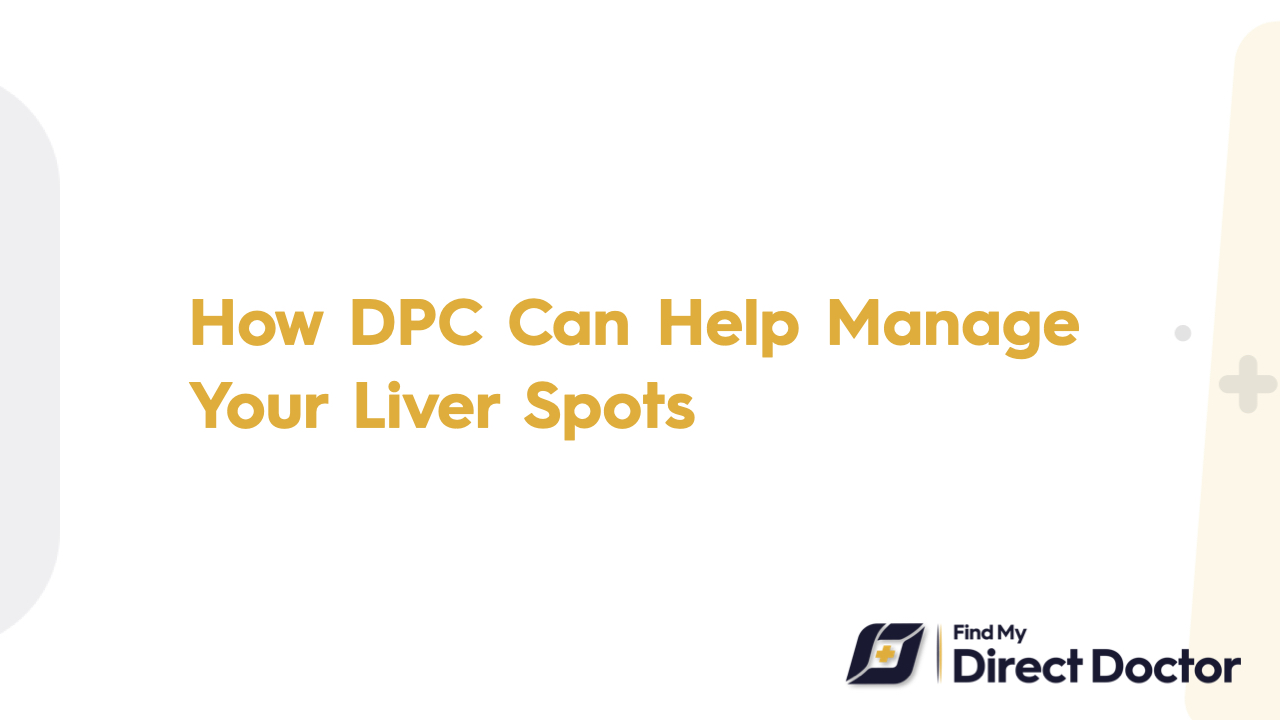



Flat, brown, or black spots called liver spots—also called age spots or solar lentigines—usually show up on the skin, particularly in places like the face, hands, shoulders, and arms that are exposed to sunlight on a regular basis. Although they are more common in elderly persons, these spots can also appear in younger people, especially those who have previously been exposed to excessive amounts of sunlight. Liver spots are frequently regarded as a cosmetic concern, despite the fact that they are typically benign and non-cancerous.

The emergence of darker patches on the skin is typically the only sign of liver spots. These spots can range from tiny freckles to larger patches, depending on their size and shape. They could appear more speckled or have a consistent color. Liver spots usually don't cause any pain, itching, or inflammation, in contrast to other skin disorders. To rule out the risk of skin cancer or other dangerous illnesses, it is crucial to get medical treatment if a liver spot changes in size, color, or shape, or if it becomes painful or itchy.
When it comes to liver spots, Direct Primary Care (DPC) can be a useful tool, particularly for people who are worried about the appearance or the hazards of the condition. Patients in a DPC model have easier access to their primary care physician, who can provide guidance on managing and tracking liver spots over time. Regular examinations allow the doctor to evaluate any changes in the spots' appearance and, if required, provide treatment recommendations.
Since prolonged sun exposure is a major contributing factor to the development of liver spots, a DPC physician may help patients understand the need of sun protection in addition to performing a comprehensive evaluation. DPC doctors can provide tailored recommendations on safeguards including applying sunscreen, donning protective gear, and limiting sun exposure. DPC providers can help patients locate appropriate over-the-counter medicines that may help lessen the appearance of liver spots or refer them to dermatologists for therapy aimed at lightening or eliminating them.
The increased degree of individualized care provided by Direct Primary Care (DPC) is one of the main advantages for people with liver spots. Patients can receive quick exams and follow-ups to track any changes in their skin because DPC gives them more direct contact to their primary care physician. This ongoing care guarantees that any new spots are evaluated right away and that additional treatment can be done right away if there is any reason for concern.
DPC also makes it possible to treat liver spots holistically. In addition to treating the spots, DPC doctors can advise patients on lifestyle modifications to stop additional skin deterioration. This includes giving advice on sun safety, skincare, and diet. Because DPC is adaptable, patients and their doctor can have continuous discussions and modify the care plan in response to the patient's needs and concerns. Patients may experience more peace of mind and get better overall results as a result of this individualized care.
When liver spots are managed with Direct Primary Care (DPC), each patient's care is customized based on their particular skin type and medical background. The primary care physician spends time learning about the patient's lifestyle, concerns, and any additional risk factors that might be involved in the development of liver spots in DPC. The effectiveness and sustainability of management initiatives are guaranteed by this all-encompassing approach.
A DPC doctor can collaborate with patients to develop a long-term skin health plan that covers possible treatments, routine examinations, and preventative measures. The care of liver spots is tailored, whether it is suggesting the best sunscreens, giving advice on whether to seek dermatological treatment, or even offering non-invasive procedures like topical creams. In addition to treating cosmetic issues, this individualized care helps guarantee that the patient's skin stays as healthy as possible. Over time, DPC can greatly lessen the appearance and effects of liver spots by fostering a proactive and preventative attitude to skin care through the development of a trustworthy relationship.
Previous Post